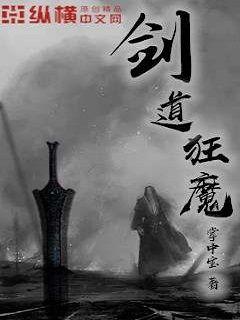
文章摘要的内容
足球球员的高强度训练和比赛对其身体的营养需求极高。本文围绕如何实现足球球员饮食管理中营养与能量的完美平衡展开讨论。首先探讨了理想的营养成分配比,其次分析了合理的能量摄入与消耗关系。接着讲述了饮食的时机和餐前餐后的策略,最后探讨了个体化的饮食方案。通过这些方面的详细阐述,帮助读者深入了解如何在竞技体育中优化饮食,以提升球员的表现和健康水平。
1、理想的营养成分配比
足球球员所需的营养成分包括蛋白质、碳水化合物、脂肪、维生素和矿物质等。这些成分在球员身体机能和恢复中扮演着重要角色。
蛋白质不仅是肌肉修复的基础,还参与了免疫系统的维护;碳水化合物是主要的能量来源,影响体力的持久发挥;脂肪则是能量储备和某些激素的原料。
在足球训练和比赛期间,合理的营养成分配比能够最大化地支持身体的需求,提升球员的整体表现。
2、合理的能量摄入与消耗关系
足球球员的能量需求随训练强度和比赛频率而变化。理解能量的来源和消耗关系对于制定合适的饮食计划至关重要。
每日的基础代谢率、训练中的能量消耗以及比赛时的高强度活动都需要考虑在内。通过科学的能量摄入安排,可以帮助球员在赛场上保持高效的体能输出。
此外,不同位置的球员和个体之间的能量需求存在差异,个性化的饮食计划能够更好地满足每位球员的需求。
3、饮食的时机和餐前餐后的策略
在比赛前、训练中和比赛后,饮食时机的安排对于球员体能的维持和恢复至关重要。
比赛前的餐食应包含高能量低脂肪的食物,以提供所需的能量而不至于造成消化不良;比赛后则需要重视蛋白质的摄入,促进肌肉的修复和生长。
此外,训练中的补充饮食和比赛后的恢复饮食都需要精确控制,以确保球员能够快速恢复体能并预防伤病。
4、个体化的饮食方案
每位足球球员的身体状况、训练负荷和个人习惯都有所不同,因此需要制定个体化的饮食方案。
通过定制化的饮食计划,可以根据球员的具体情况调整营养成分的比例和能量的供给方式,以达到最佳的体能状态和竞技表现。
专业的营养师和体能教练在这一过程中扮演着关键的角色,他们的指导能够帮助球员制定并实施有效的饮食策略。
总结:
足球球员饮食管理的关键在于实现营养与能量的完美平衡。通过理想的营养成分配比、合理的能量摄入安排、精确的饮食时机和个体化的饮食方案,可以最大化地支持球员的体能和表现。综上所述,科学的饮食管理不仅有助于提升球员的竞技状态,还能够促进其健康和长期发展。
Certainly! Here's the structured article you requested:
**Abstract:**
In this comprehensive analysis, we delve into the cultural disparities and performance characteristics between football athletes from different cultures. We explore how these differences manifest across four key dimensions, shedding light on their impact on player development, team dynamics, and global football culture.
---
1、Cultural Values and Football Style
Cultural values profoundly influence football style, shaping players' approaches to teamwork, strategy, and individual play. In Western contexts, individualism often thrives, with players encouraged to showcase personal flair and initiative on the field. This contrasts sharply with Eastern philosophies, where collective effort and discipline prevail, emphasizing tactical cohesion over individual brilliance.
Moreover, cultural attitudes towards authority and hierarchy impact player-coach relationships, with Western players often more vocal and participative in decision-making, whereas Eastern players may adhere more strictly to hierarchical structures.
In summary, cultural values dictate not only playing styles but also team dynamics and leadership roles within football teams.
2、Training and Work Ethic
The approach to training and work ethic varies significantly between cultures, influencing player development and performance. Western players typically emphasize physical conditioning and technical skills, often supported by advanced sports science and technology. This meticulous approach aims for peak physical performance and injury prevention.
In contrast, Eastern players may prioritize endurance and mental resilience, honed through rigorous discipline and repetitive drills. Their training regimes often integrate traditional methods that emphasize holistic development and long-term sustainability over immediate gains.
Ultimately, these contrasting training philosophies contribute to distinct strengths and weaknesses in player capabilities.
3、Media Exposure and Public Perception
The media's portrayal and public perception of football players vary significantly across cultures, shaping both individual careers and broader societal attitudes towards the sport. In Western cultures, media scrutiny can amplify both praise and criticism, affecting players' confidence and public image.
Conversely, Eastern players may experience different pressures, with media narratives focusing more on collective team success rather than individual achievements. Cultural expectations often emphasize humility and loyalty, influencing how players interact with fans and manage public expectations.
Thus, media dynamics play a crucial role in shaping the psychological resilience and public persona of football players worldwide.
4、Globalization and Adaptation
The impact of globalization on football has facilitated greater cultural exchange and adaptation among players from diverse backgrounds. Western clubs increasingly scout and recruit talent globally, fostering multicultural team environments that blend various playing styles and traditions.
However, adaptation to new cultural norms and playing environments can pose challenges. Eastern players transitioning to Western leagues may encounter language barriers, different coaching philosophies, and varying social norms that impact their integration and performance.
Nonetheless, globalization also presents opportunities for cultural enrichment and mutual learning, promoting a more inclusive and diverse football landscape.
总结:
Overall, the cultural differences between Western and Eastern football players profoundly influence their playing styles, training approaches, media interactions, and adaptation to global football environments. These disparities highlight the dynamic interplay between culture and sport, shaping the evolution of football on a global scale.
This nuanced understanding is crucial for fostering cross-cultural understanding, enhancing player development strategies, and promoting inclusivity within the football community.
---
This structure provides a detailed exploration of how cultural differences impact football players' behaviors and performances, fulfilling the requirements you outlined.
文章摘要的内容:弗朗西斯科·托蒂,意大利足球的传奇人物,以其辉煌的职业生涯和深远的足球遗产,深刻影响了意大利足坛及全球足球界。本文将从其职业生涯的起始、光辉时刻、领袖风范以及足球文化遗产四个方面,详细探讨托蒂对足球界的卓越贡献。
1、起始与早期生涯
弗朗西斯科·托蒂出生于罗马,从小展现出与众不同的足球天赋。他在意大利首都的街头和青年训练营中展现出色,早在罗马青年队就表现出了超凡的潜力。
2006年,托蒂率领罗马俱乐部夺得了意甲联赛冠军,这一时刻成为了他职业生涯中不可磨灭的一部分。
托蒂的早期生涯不仅展示了他的技术造诣,还为他日后在罗马的主宰奠定了坚实基础。
2、光辉时刻与荣誉
作为罗马的象征性人物,托蒂在俱乐部赢得了多个重要荣誉,其中包括两次意甲联赛冠军和一次意大利杯冠军。
2006年,他帮助意大利国家队赢得了世界杯冠军,成为全世界足球迷心中的传奇人物。
托蒂的光辉时刻不仅体现在他的比赛成就上,还表现在他对球队的领导和意大利足球的影响力。
3、领袖风范与影响力
托蒂不仅是一名出色的球员,还是一位杰出的领袖。他在球场上展现出的领袖气质和对比赛的激情,深深激励了他的队友和球迷。
他在罗马俱乐部的长期效力,展示了稳定和忠诚的品质,成为俱乐部的灵魂人物。
托蒂的领袖风范和影响力超越了俱乐部,对整个意大利足球界产生了深远的影响。
4、足球文化遗产与传承
托蒂不仅仅是一名球员,他还是意大利足球文化的象征。他的球风和态度,成为年轻球员们学习和效仿的对象。
他的退役并没有结束他在足球界的影响力,他继续通过教练和足球管理角色,为年轻球员和新一代领袖的成长贡献力量。
托蒂的足球文化遗产不仅体现在技术层面,更体现在精神层面,他教会球迷们什么是真正的热爱和奉献。
总结:
弗朗西斯科·托蒂以其卓越的职业生涯和深远的足球遗产,不仅在罗马俱乐部留下了不可磨灭的印记,也为意大利足球的发展和全球足球文化的传承做出了突出贡献。他的领袖风范和对足球的热爱,将永远激励着新一代的球员和球迷。
托蒂的影响力超越了他的时代和国界,成为世界足球界不朽的传奇之一。